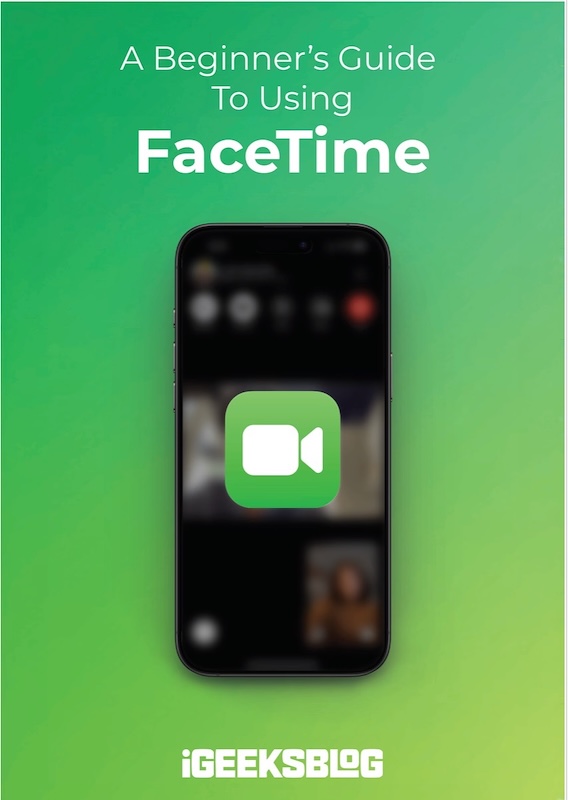
FaceTime Like a Pro
Get our exclusive Ultimate FaceTime Guide 📚 — absolutely FREE when you sign up for our newsletter below.

FaceTime Like a Pro
Get our exclusive Ultimate FaceTime Guide 📚 — absolutely FREE when you sign up for our newsletter below.
Meta has poached its sixth Apple AI researcher in seven weeks, as Frank Chu joins its Superintelligence Labs despite a hiring freeze, intensifying the AI talent war.
Meta’s appetite for AI talent isn’t slowing down, even as reports suggest the company has imposed a hiring freeze. According to Bloomberg, Meta has poached Frank Chu, a senior AI leader from Apple, marking the sixth high-profile defection from Cupertino to Menlo Park in under two months. The move adds fuel to an intensifying talent war in Silicon Valley and raises deeper questions about Apple’s ability to retain top researchers in a fiercely competitive market.
Officially, Meta is supposed to be on pause when it comes to bringing in new AI hires. Just this week, internal reports indicated a stop to recruitment across AI divisions and restrictions on internal transfers between teams. But Frank Chu’s arrival suggests the freeze comes with caveats—especially when the candidate is seen as too valuable to pass up.
Chu previously led Apple’s AI work on cloud infrastructure, training systems, and search technologies. He’s now joined Meta’s newly formed Superintelligence Labs, the division reportedly spearheading the company’s next big AI push.
His hiring follows that of Ruoming Pang, formerly head of Apple’s foundation models team, who was reportedly lured to Meta with a package north of $200 million. Pang’s exit appears to have triggered a wave of departures, with Chu’s move now seen as the most significant since Pang left.

Meta’s approach isn’t about broad expansion—it’s about acquiring top-tier names at staggering cost. Mark Zuckerberg’s company is offering massive compensation packages, in some cases up to 50 times what competitors are willing to pay, in order to secure elite researchers.
Since July, Meta has pulled in more than 50 AI staffers from Apple, Google, OpenAI, and Anthropic. The strategy has sparked optimism around Meta’s AI capabilities, but also concern about ballooning stock-based compensation and whether those high-priced hires can deliver meaningful results.
Zuckerberg appears committed to consolidating AI talent under Superintelligence Labs, betting that critical mass will translate into leadership in the next phase of machine learning development. But the pressure to justify these costs is mounting.
Also Read: Tim Cook Says Apple Is Now ‘Open to’ Big AI Acquisitions
Apple is facing a growing perception problem. With six senior AI figures defecting to Meta in just seven weeks, doubts are deepening about Apple’s standing in the AI race. CEO Tim Cook fielded questions about Apple’s strategy during its Q3 earnings call and later held an internal meeting to emphasize that the company is investing heavily in the space.
But public statements and private briefings may not be enough. Apple’s AI efforts, often seen as incremental and cautious, have struggled to match the momentum of rivals. Siri’s underperformance is still viewed as emblematic of a broader lag, and losing key engineers like Pang and Chu only reinforces that narrative.
Despite the recruitment streak, Meta’s internal AI structure remains in flux. The company has restructured its AI organization four times in just six months. Reports describe ongoing friction between teams and cultural mismatches that make it difficult to unify direction.
Even so, Meta continues to make exceptions to its hiring freeze to bring in top-tier talent. That underscores how vital these individuals are to the company’s long-term AI ambitions, even if integrating them poses operational challenges.
Concentrating elite researchers in a single division may accelerate Meta’s development timeline. But it could also create blind spots, reduce diversity in thought, and lead to culture clashes if teams aren’t aligned. For Apple, the more pressing issue is whether it can find a way to stop the bleeding before its AI credibility takes another hit.
Meta’s targeted hires and Apple’s inability to plug the talent drain highlight just how intense the AI talent war has become. For Meta, the question is whether the payoff justifies the cost. For Apple, it’s whether a reactive stance can evolve into a competitive strategy.
Does Meta’s aggressive recruitment strategy change your view on Apple’s AI future? Sound off in the comments.